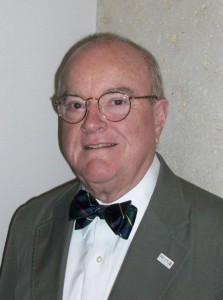For the second year in a row, a mental health conference focused on Latino students will be held at California State University, Dominguez Hills, on Friday, April 27, from 8 a.m. to 2:30 p.m., in the Loker Student Union ballroom.
Geared toward Latinos aged 11 to 23, the free conference is expected to be attended by more than 150 students. Professor of Chicano/a studies and organizer for the conference Miguel Dominguez said the conference is an opportunity for students, parents, community leaders, counselors, health care providers, and educators to gain insight into the complexity of mental health issues and to begin to explore how to deal with them–mainly, identifying what constitutes a mental health issue, admitting to having an issue, and seeking resources to begin to deal with it.

This year for the conference, “Advancing Latina/Latino Mental Health Care in Higher Education,” Dominguez has collaborated with Gustavo Loera, director of educational research and development at Mental Health America of Los Angeles (MHALA), to combine their respective expertise in Chicano/a studies and psychology. Dominguez said it was a logical partnership because student learning and mental health overlap.
“Some of these issues that we have in mental health are directly related to student learning and student success,” Dominguez said, explaining that non-academic factors can block learning, whether they are genetic conditions such as schizophrenia or depression, or emotional issues including difficult family dynamics, relationship breakups, or job loss, to name a few.
Pointing out that mental health issues not only affect the troubled, but also those close to them, Dominguez said it is equally important to understand how to deal with mental health issues, regardless of which side of the condition one stands.
“Just like with physical health, mental health affects the caregiver,” he said.
Dominguez hopes this conference will help people approach mental health the same way they do physical health; without attaching stigmas and embracing a proactive and comprehensive approach. He cited the Greek proverb, “A sound mind in a sound body,” saying he hopes people will adopt it as a philosophy for dealing with their mental health care. In one of the conference’s sessions, “Funds of Knowledge: The Use of Proverbs in Dealing with Stress and Mental Health among Latinos,” Dominguez will explore other adages that provide insight to how people consider mental health.
“One of the things we find about students, is they all say, ‘I’m not crazy, I don’t need it,’” Dominguez said, adding that this dilemma will be discussed, and hopefully dispelled, in “Therapy: It’s not Just for Los Locos,” a session led by Career Center psychologist Denna Sánchez, and Student Health and Psychological Services psychologist Mónica Rosas-Baines.
Although, the conference focuses on how Latinos perceive and deal with mental issues–such as in the session, “Addressing the Mental Health Concerns of Latina/Latino Students in Higher Education,” led by Loera–Dominguez said mental health issues cross all ethnic lines, remain steeped with misconception and stigma, and are often perceived in the same shameful light, no matter what ethnicity a person has. He hopes the conference will shed light on the topic for all students.
Other presentations are: “Exploring the Self: Ethnic Identity and Possible Selves,” led by Elena Reigadas, psychology instructor at Los Angeles Harbor College, and Silvia Santos, professor of psychology at CSU Dominguez Hills; “Verbal Violence, Obscene Language, and Mental Health,” led by Ivonne Heinze-Balcazar, chair and professor of modern languages at CSU Dominguez Hills; “Targeted School Violence: Managing the Threat,” led by Tony Beliz, deputy director of emergency outreach bureau at the Los Angeles County Department of Mental Health; and “Understanding Domestic Violence and Building Healthy Relationships,” led by Christina Kreachbaum and Cecy Lara of Su Casa~Ending Domestic Violence, a nonprofit, community-based organization dedicated ending domestic violence.
There will also be two morning panel sessions. “Socio-Cultural Factors in Empowering Urban Communities: Home is Where the Culture is” will feature panelists, Kreachbaum, Lara, Dominguez, Loera, and Jacqueline Hernández, district staff assistant for U.S. Congresswoman Grace F. Napolitano (D-CA). “The Role of School Environment, Social Influences, and Ethnic Context on Student Mental Health and Academic Achievement” will feature Beliz, Reigadas, Santos and Heinze-Balcazar.
Lunch break activities will include keynote talks given by Richard Van Horn, president emeritus of MHALA, and Mitchell Maki, vice provost, academic affairs.
Attendance at the conference is free, but seating is limited and reservations are recommended. Registration that included a box lunch has sold out. Those who pre-register now or do not register can visit nearby or on-campus dining options at their own expense.
The conference is presented by the Department of Modern Languages, Hermanas Unidas, and MHALA, one of the county’s oldest nonprofit mental health organizations and an affiliate of the National Mental Health America. It is co-sponsored by the College of Arts and Humanities, Associated Students, Inc., the Latino Staff and Faculty Association, and through a grant from the Instructionally Related Activities Fund.
For more information, contact Dominguez at (310) 243-3315 or mdominguez@csudh.edu.
CSU Dominguez Hills offers free on-campus resources for students:
Associated Students, Incorporated
Loker Student Union, 231
(310) 243-3686
http://www.csudh.edu/asi/
Career Center (Psychological Counseling)
Welch Hall, D-360
(310) 243-3625
http://www.csudh.edu/studentaffairs/careercenter/
Toro Learning Center (formerly CLASS)
North Wing Library, C-532
(310) 243-3827
http://www3.csudh.edu/student-affairs/tlc/
Disabled Student Services
Welch Hall, D-180
(310) 243-3660
http://www3.csudh.edu/student-affairs/dss/
Financial Aid Office
Welch Hall, B-250
(310) 243-3691
http://www.csudh.edu/studentaffairs/financialaid/
Student Health and Psychological Services
Student Health Center, Student Health Services: (310) 243-3629
Psychological Services: (310) 243-3818
http://www.csudh.edu/studentaffairs/studenthealth/